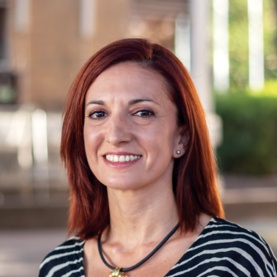
What was the best thing about the PhD programme?
I have fond memories of my time at WBS as it was a very enriching experience. I appreciated the guidance and support of my research supervisors, the seminars I attended as part of the Post Graduate Research Skills Programme, and the opportunity to form part of a community of Doctoral students with whom I could discuss ideas and difficulties. Other perks were the great resources on campus, including the Doctoral students’ offices, lecture halls and library facilities.
What inspired you most throughout your research studies?
Sources of inspiration during my PhD included regular discussions with my peers and supervisors, and with their network of scholars at WBS and other universities.
Tell us a bit more about your experience of finding and working with a supervisor during your research studies.
I came across the work of Professor Deniz Ucbasaran as I was carrying out a preliminary literature review for my proposal and was inspired by her research on entrepreneurial cognition. I emailed her to enquire if she would be interested in supervising my PhD and was delighted when she accepted. Once I started the PhD, two co-supervisors were appointed to provide additional guidance. I am grateful to my supervisors for being role models that I could both turn to and look up to, and I now work hard to emulate them as I supervise my own research students at the University of Malta.
Can you tell us about your current role at The Edward de Bono Institute, University of Malta?
I joined the Edward de Bono Institute as a Master student in 2006, and was later employed as a research support officer in 2007. In 2008 I was awarded an academic post in Creativity, Innovation and Entrepreneurship at the Institute, and commenced my PhD at WBS in 2009. I completed the PhD in 2013 and was appointed Director of the Institute shortly afterwards.
My current role includes a wide variety of teaching, research, administrative and outreach activities related to entrepreneurship, creativity and innovation. My undergraduate and postgraduate teaching duties include the development of new courses, preparation and delivery of lectures, and supervision of Master and PhD dissertations. My research has been presented at conferences and published in high impact outlets, including the International Journal of Management Reviews, International Journal of Entrepreneurial Behavior and Research, and in edited books by Routledge, Springer and Edward Elgar. I am Malta’s coordinator of the Global Entrepreneurship Week events that are held annually in over 160 countries, and I participate in various externally funded projects in collaboration with international and local partners. I am a member of various Boards and Committees including the University of Malta’s Centre for Entrepreneurship and Business Incubation and Research Ethics Committee.
Can you tell us about your role as an Associate Fellow at WBS?
I held the status of Associate Fellow at WBS from 1st October 2013 to 30th September 2015. This appointment extended my collaboration with my supervisors beyond my enrolment as a Doctoral student. It facilitated further development of my research as well as participation in international conferences including the Babson College Entrepreneurship Research Conference and the Academy of Management Annual Meeting.
After completing your PhD can you tell us why you decided to pursue a career in academia?
I am innately curious and driven to learn, so the research aspect of academia was very attractive to me. I also enjoy sharing ideas and knowledge with peers, students, and the broader community through the various teaching and outreach activities that I am involved in. Most of all, however, I find it very rewarding to guide students as they undergo a process of learning and growth, and then watch them succeed in their own careers.
As a PhD alum what advice would you give to potential students wanting to join the PhD programme at WBS?
The PhD can be quite a roller-coaster of emotions, with peaks of progress and clarity often followed by dips of difficulty and uncertainty. My advice to any prospective PhD student is to find a research topic that they are truly passionate about, as this will help them stay on track and enjoy the ride.




 X
X Facebook
Facebook LinkedIn
LinkedIn YouTube
YouTube Instagram
Instagram Tiktok
Tiktok